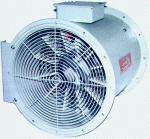
| ||||
W. Tombling Ltd.
Wembley House
Dozens Bank
West Pinchbeck
Spalding
Lincolnshire
PE11 3ND
U.K.


It is a common misconception that electric heating is expensive to run. Although electricity is more costly to purchase than other forms of fuel, when overall running costs are analyzed, electric heating is a viable alternative. This is due to a number of factors:
Conversion efficiency of electric heating
Electric heaters convert nearly 100% of electricity into heat. Efficiency is unaffected by cycling or running at less than full load. Fossil fuel heaters achieve maximum efficiencies in the region of 80%. In typical installations, where the heater is not running at full load or is cycling on-off, efficiencies can drop to as low as 5%, giving an average annual efficiency in the region of 60%. This should be taken into consideration when comparing the running costs of electric heating with other fuel types.
By-products of combustion
Fossil fuel heaters produce unwanted gasses and use up oxygen as a
result of combustion. Building occupants often complain of eye, nose or
throat irritation where bottled gas heaters are being used. Increasing
ventilation rates to combat these symptoms increases the heat input required
to maintain a given temperature.
Water vapour is another by-product of combustion, a LPG (liquefied petroleum gas) heater produces 1Kg of water vapour for every 1Kg of fuel burnt. Where this is a problem dehumidification will be necessary, again increasing overall running costs.
Electric heaters produce no fumes or water vapour eliminating the need for additional ventilation or dehumidification.
Electric heating reduces pollution. Electricity is generated centrally by power stations designed to keep pollution to an absolute minimum. Burning fossil fuels in relatively small and inefficient heaters, inevitably creates more environmentally damaging by-products.
Controllability of electric heatingUsing modern electronic controls, the output of electric heaters can be controlled between 0 and 100% with little or no loss in efficiency. Fossil fuel heaters are much more difficult to control, often being limited to simple on-off control with a resultant loss of efficiency.
Electricity pricing Tariffs
In many applications heat is required principally at night. The
availability of cheap night time electricity is obviously extremely
beneficial in such cases.
Larger electricity users may benefit from discounted special rates based on average annual consumption.
Installation and lifetime costs of electric heatingElectric heaters take up little space, don’t need flues, fuel lines or storage tanks. Installation is quick and cost effective. On going servicing to maintain combustion efficiency is unnecessary, and the relative simplicity of electric heaters leads to longer working lives.
From the above it is obvious when selecting a new or replacement heating system that electric heating should be given serious consideration. This is especially true for heating systems in small to medium sized buildings or where frost or supplementary heating is needed in larger buildings.
Copyright © 2002/6, W. Tombling Ltd.